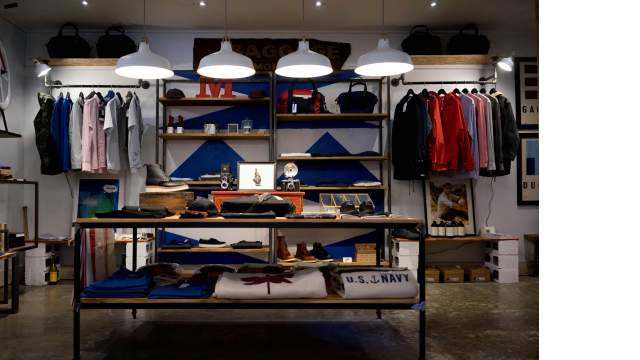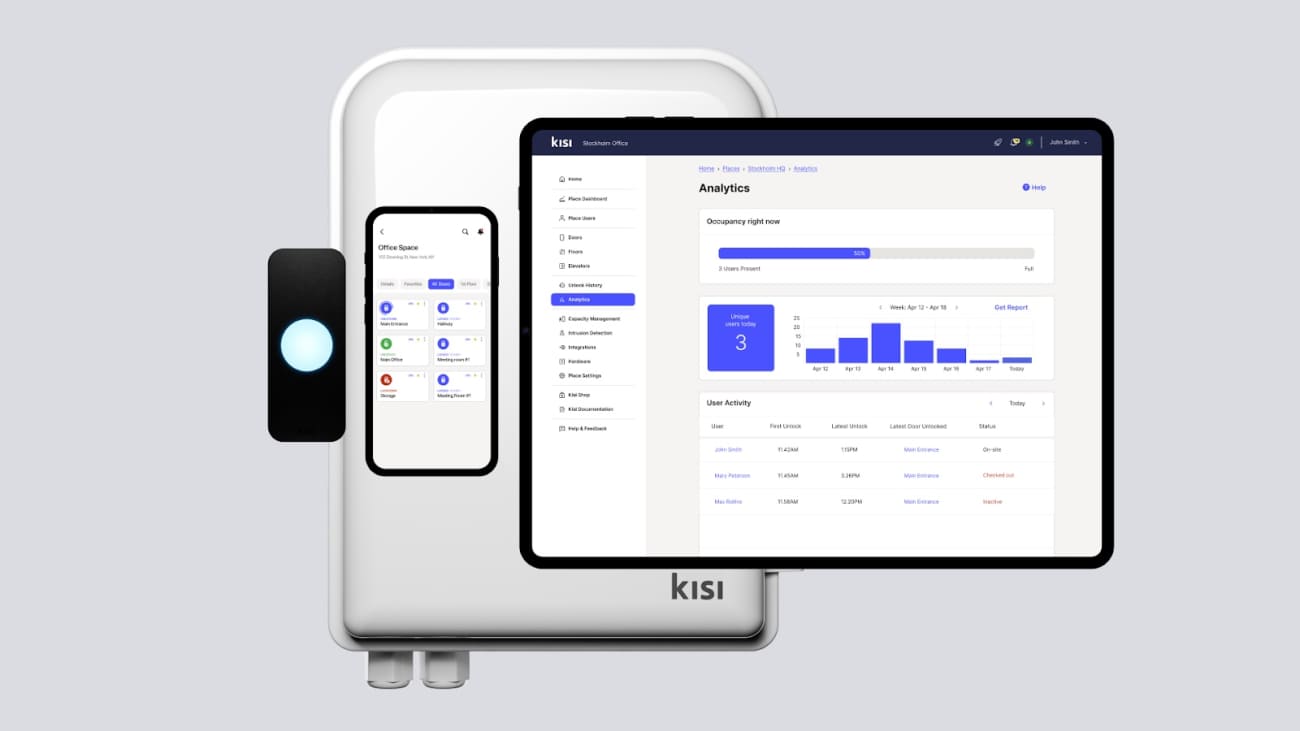Worries about retail crime are on the rise. In 2023, more than 70% of retailers in the United States were concerned about organized retail crime and violence during a criminal act. These fears are well-founded, with the U.S. Chamber of Commerce reporting more than $125 billion in economic losses due to organized retail crime in 2023.
The moral of the story — it’s never been more important to have a solid retail security system in place. These systems can significantly reduce the risk of theft, property damage, and other types of crime in retail stores. In this article, you’ll learn how retail security systems work, why they’re so important, and what you should keep in mind when choosing one for your business.
What is a retail security system? #
A retail security system is a group of technologies, including hardware and software, that stores can use to identify, prevent, and mitigate threats. They help protect stores from criminal activity, including theft and vandalism, that can cause significant financial losses and put employees in danger.
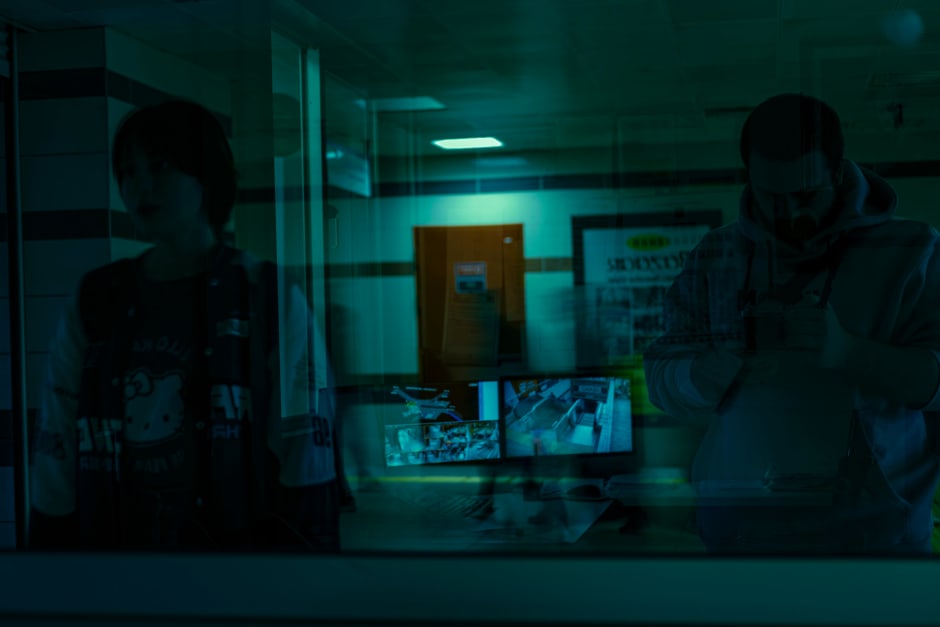
Why retail stores need comprehensive security #
Security is important for every kind of business, but retailers are particularly vulnerable in some areas. In most retail stores, inventory is kept on shelves or on the floor and is visible to the public. For would-be criminals, this makes them a more tempting target than warehouses or other facilities, where products are kept out of sight behind locked doors.
Shops are vulnerable to this kind of inventory loss at virtually every hour of the day. During open hours, customers — and some employees — may attempt to shoplift items when they feel they aren’t being watched. Some stores employ security teams to prevent shoplifting, but the threat of theft doesn’t disappear when the store closes. Bad actors might attempt to break in and steal inventory while no one is around, and many retailers can’t afford 24/7 security staffing.
Security systems are a logical solution. Unlike security guards, they’re always on duty, constantly monitoring the premises for threats and alerting you to suspicious activity. That kind of protection is essential when 7% of small U.S. business owners report losing more than $3,000 to theft each month.
Key components of retail security systems #
It’s easy to see why you need a retail security system, but what exactly does that entail? For most businesses, it breaks down into these elements:
- Access control: Access control systems allow you to determine who has permission to enter different areas of your store. They generally include locks, readers, and credentials that prevent unauthorized individuals from accessing specific spaces.
- Video surveillance: A video surveillance system empowers you to keep eyes on your business at all times. With security cameras, software, and physical or cloud storage, you can monitor what’s happening in real time and review recorded videos of past events.
- Intrusion detection: If someone enters a space that’s off-limits to them, intrusion detection will let you know. It will set off an alarm and notify you when someone attempts to gain access without authorization or breaks into your store.
- Fire and smoke alarms: Nature can be just as dangerous to your store as people. Fire alarms are crucial tools that alert you and your employees when smoke or flames are present, allowing you to evacuate the premises and contact emergency services for help.
While each of these components is important on its own, retailers need a security system that incorporates all of them to fully protect against criminal activity and natural disasters.
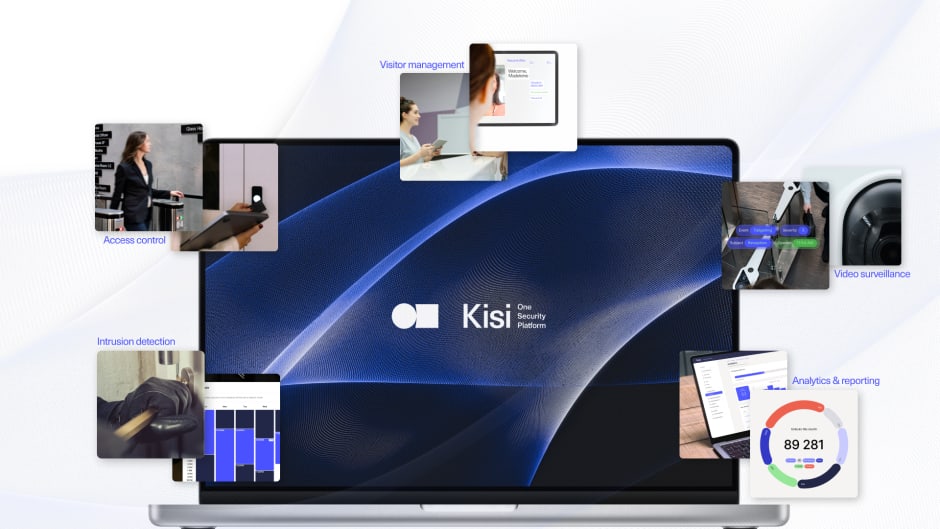
The benefits of effective retail security systems #
Stores have a lot to gain by implementing a strong retail security system — and a lot to lose if they don’t. These are the biggest advantages of prioritizing retail security.
Theft and vandalism deterrence #
When bad actors see that you have a retail security system in place, they’re less likely to target your business. If they know that you’re monitoring their actions and using sensors and alarms to track their movements, the risk of attempting to break in or damage your property becomes too high for the potential reward. This is also true during operating hours. When prospective shoplifters realize that you’re constantly watching their actions, they’ll feel more nervous and afraid to steal inventory.
Enhanced employee safety #
Products and property aren’t the only things criminals might put in harm’s way. Your employees are also at risk, and it’s crucial you put their safety first by implementing a security system. According to the National Retail Federation, retailers have seen a significant increase in violence and aggression involved in shoplifting incidents. A security system that deters activities like shoplifting, prevents unauthorized access, and alerts management and the authorities to attempted crimes helps ensure that your team stays safe while at work.
Faster incident response times #
Time is of the essence when a crime occurs, and any delays could result in greater damage being done to your business. A security system with automated alerts and continuous monitoring can detect an incident as soon as it begins. This means you can quickly contact or automate the process of calling emergency responders and take steps to secure your property and protect your employees. In retail security, even a few minutes can mean the difference between a significant loss and a minor inconvenience.
Reduced staffing requirements #
Your business may still hire a security team to oversee your system and provide human interventions in the event of a crime, but a retail security system gives you more flexibility in terms of staffing. Rather than keeping guards on-site at all times, you can pick and choose when their presence is most important.
This allows you to save money and allocate your resources to other areas. During times when security staff are present, your retail security system serves as an additional layer of protection that empowers them to complete their work more effectively and efficiently.
Evidence for criminal investigations and claims #
If the worst happens and your retail store experiences a security breach, you need solid proof of what occurred. A security system can provide you with exactly that. For example, if someone steals property from your shop, your video surveillance system will record footage of the incident. This makes it easier for investigators to identify the perpetrator and bring a case against them. This kind of evidence is also crucial when filing claims with your insurance provider because it demonstrates that you’re giving an accurate and complete account of the incident.

Important considerations when implementing retail security systems #
While a retail security system is beneficial to your business, there are some points to consider before implementing it. Doing so gives you the best chance of safeguarding your store against human and natural threats.
Assess your vulnerabilities #
Before you make changes to your store’s security system, you need to know exactly what you’re looking for. The first step is to ask some important questions:
- How large is your store?
- What is the layout of your store, and are there areas that are difficult for security guards to physically monitor?
- What kinds of crime are most common in the local area, and what types of security incidents have you experienced in the past?
- Assuming you have one, what are the gaps in your existing system?
- How can you address those vulnerabilities by replacing or upgrading components of your system?
Your answers to these questions will help you avoid some of the challenges retailers sometimes encounter when using a new security system. For example, if you invest in video surveillance but don’t purchase enough cameras to adequately cover your entire store, you may be leaving yourself exposed to theft and vandalism.
Find areas of focus #
Now that you know what you need to work on, you can think strategically about how to implement your system. As part of that process, it’s important to recognize that there are certain places on your premises that are more vulnerable than others.
For example, placing security cameras at entrances, exits, windows, and loading areas is essential. In addition, consider less visible spaces, such as elevators and stairwells, as well as checkout areas, where customers or employees might attempt to commit theft or fraud.
This same principle applies to access control. Naturally, you’ll want to restrict access to the primary entrances and exits for your store, but those aren’t the only locations to consider. You can also use an access control system to prevent unauthorized individuals from entering employee-only areas, such as offices or stock rooms.
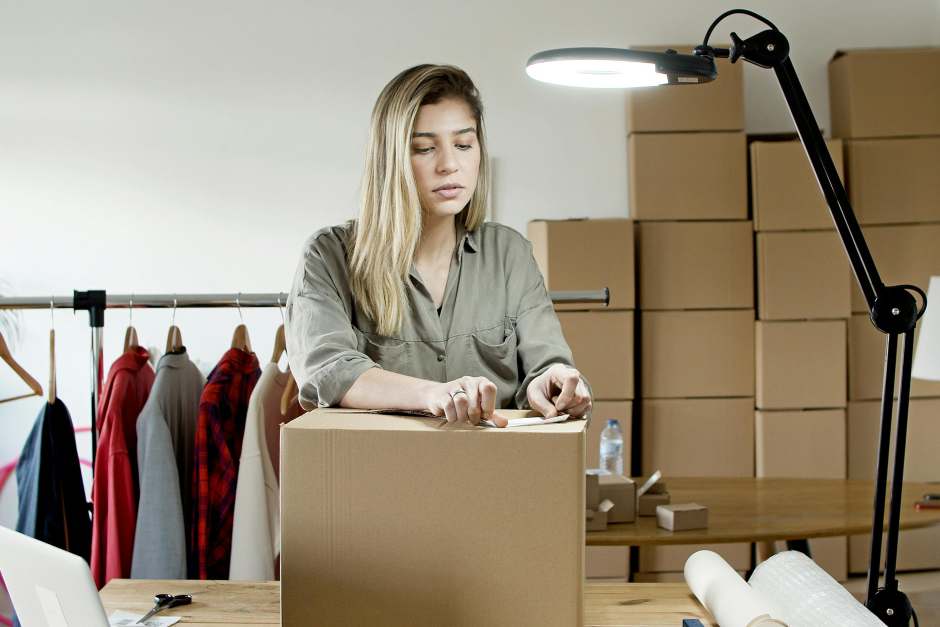
Decide on a data storage method #
Data storage can be difficult for retailers, particularly small businesses with limited space. Video surveillance systems with physical monitors and hardware can take up valuable square footage that your store could use for other purposes. For this reason, a growing number of businesses are moving away from on-site servers to the cloud, where they can store video footage and analytics on remote servers that don’t take up physical space.
Another downside of on-site storage is that it involves more internal maintenance than a cloud system, where the third-party provider generally takes care of updates and maintenance activities. You can also access the data from anywhere, and you don’t have to worry about losing data due to a natural disaster or stolen hardware.
How to choose the right retail security system #
Retail security is a growing market, which means there are many systems available for you to choose from. To protect your store, you’ll need a system that addresses both internal and external threats and aligns with your specific business needs. Before you make your choice, look closely at these factors:
- Customization: You should be able to configure the system to your store’s layout, size, and vulnerabilities.
- Integrations: A cohesive system is more effective, so look for solutions like Kisi, which has multiple integration options with other security components, such as video surveillance.
- Remote access: A cloud-based system with remote access allows you to remain aware of any threats or incidents even when you’re off-site, so try to find a system like Kisi that allows you to easily migrate your legacy system to the cloud.
- Special functionalities: Find a solution with features and functionalities that will minimize your risks, such as intrusion detection with real-time alerts.
- Scalability: Look for a system that offers global management and will make it easy for you to add new users, door locks, location, and security hardware, like cameras, as your business grows.
Although your budget is also another important consideration, keep in mind that the money you initially invest in your security system could save you thousands or hundreds of thousands of dollars in losses down the line.

Future trends in retail security #
The retail security space is undergoing a transformation. The days of security guards sitting in booths monitoring grainy videos are long gone. Now, retailers can take advantage of new technologies to streamline and enhance their systems.
One of the most important developments in recent years is the growing role of mobile devices in security systems. For example, with mobile access control, employees can use apps and digital credentials, like their Apple Wallets, to unlock doors rather than relying on fobs, cards, or keys. Mobile devices are also playing a more prominent part in video surveillance and incident reporting, as employees can view live video feeds, report suspicious activity, and track security events using their phones and tablets.
Similarly, artificial intelligence (AI) will become more mainstream in security systems moving forward. AI-powered sensors and video analytics offer more precise control and insights to security teams and store managers. They allow you to analyze data more quickly, identify vulnerabilities more easily, and predict potential security risks.
Keep your store secure with Kisi #
To keep up with all the changes in retail security systems, you need a future-proof solution. Kisi’s interoperable, all-in-one security platform is a crucial component in a seamless system that prevents criminals from stealing your property and harming your employees. Reach out to our team to schedule a free demo and get advice on how to easily upgrade your security system or choose the right system from scratch.
